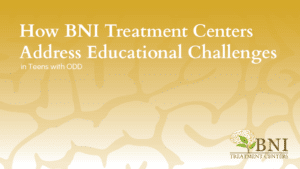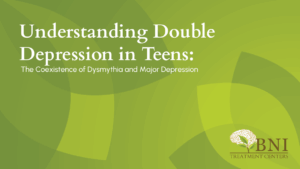Teenage Drug Abuse And Addiction
Teen addiction and drug abuse is a serious issue that can lead to long-term problems. Learn about the signs of teen drug abuse and getting treatment for teen addiction.
The teen years are notorious for drug and alcohol experimentation. All parents hope their teen will skate through the teen years unscathed by drugs, but sadly that doesn’t always happen. Some kids will become swept up into the party scene and succumb to peer pressure.
Drug abuse and addiction can be devastating to the teen, affecting all aspects of their lives. If your teen is using drugs, the earlier you address the problem, the better. Keep reading to learn more about teen addiction and drug abuse.
About Teenage Drug Abuse
The teen years are a critical time for brain development. The teen brain is not fully formed until age 25. Much research has shown us that when teens engage in substance use it can impair their brain development. This is especially true with regard to the limbic system where decision-making, impulse control, and emotion regulation are controlled.
The adverse effects of substance abuse on teens are many, to not only the brain but in all aspects of life. Each substance of abuse carries its own unique set of symptoms and negative effects, but share these in common:
- The use of drugs and alcohol can cause decline in grades and college prospects.
- Abuse of opioids can result in a heroin addiction later.
- Substance abuse can cause impaired cognitive function and brain damage.
- Drug abuse can fuel risky behaviors, such as driving under the influence. These can result in a car accident or DUI, unsafe sex, and violent assaults.
- Drug abuse can result in legal troubles and incarceration.
- Substance abuse can result in a co-occurring mental health disorder.
What Are The Causes of Drug Abuse Among Youth?
There are a number of reasons why do teens use drugs or alcohol. Each child has his or her own unique personality traits, and some will just be more curious. Some teens have less developed impulse control, while others might be drawn to seeking thrills.
Some of the common reasons why teens use drugs include:
- Peer pressure. This is an age when their friends hold much sway over their choices. Teens can get swept up with the group if there are drugs present, and will want to fit in.
- Curiosity. Some teens like to push the boundaries and try new things simply because they are curious about a drug’s effects.
- Enhance academic performance. Adderall, the so-called “study drug,” is a stimulant that helps the teen to focus better and needs little sleep.
- Self-medicate. Some teens might look to drugs or alcohol as a means of numbing their feelings or to manage anxiety.
- To increase confidence. Certain drugs may help the teen in social settings if they are shy or lack confidence.
Drug Trends Among Teens Now
Trying to keep up with the drug trends among teens is hard because these are always shifting and changing. The current MTF report states that the most used substances by teens are:
- Alcohol
- Marijuana
- Nicotine
- Adderall
- Opioids
- Sedatives
- Inhalants
In addition to these, there are still incidents of teens using many other substances. These include DXM (cough suppressant), hand sanitizer (alcohol content), and MDMA among others.
Signs of Teen Drug Abuse and Addiction
When a teenager is involved in substance use there will be red flags. These are the signs of drug or alcohol abuse that can alert a parent that their child is in trouble. These warning signs might include:
- Declining grades.
- Loss of interest in things they once enjoyed.
- Withdraws from friends and family.
- Sneaky behaviors.
- Physical signs of drug or alcohol use:
- Pinpoint pupils.
- Sudden weight loss.
- Glassy eyes.
- Constant runny nose.
- Smells of pot or alcohol.
- Chronic constipation.
- Loss of interest in appearance and hygiene.
- Stealing pills from family members.
- Engaging in risky behaviors, such as driving under the influence.
- Trouble with the law.
- Truancy
- Hanging out with a different crowd.
- Stealing money from family members.
- Mood swings.
- Depression
- Anxiety
- Change in sleep habits.
- Change in eating habits.
- Shipments arrive in the mail (buying drugs online).
- Irritability
- Withdrawal symptoms emerge.
If parents suspect their son or daughter is involved in drug abuse, they should have their teen assessed by a doctor. An exam and labs may help confirm drug use, and a referral to a teen detox program is then made.
What is a Dual Diagnosis?
Some teens may have co-occurring disorders, meaning they have the signs of both addiction and a mental health disorder. This is called a dual diagnosis. The symptoms of the dual diagnosis will vary based on which drug is involved and the mental health issue present.
Sometimes a teen will begin to use drugs when they are struggling with ADHD, anxiety, or depression. With repeat use, though, the teen addiction from drug abuse can occur. What can also happen is a teen who is using drugs begins to have mental health symptoms as a result. They may begin to suffer adverse life consequences from the addiction that can lead to depression or other mental health issues.
When a dual diagnosis is present, the teen will need a treatment program that will address both of these disorders. These are specialized programs that include both addiction and psychiatric expertise.
How to Get Help for Your Teen
Teen addiction and drug abuse are serious problems that require expert treatment. Programs should be designed for teens, as treatment protocols will differ from adults. Treatment includes one-on-one therapy, group therapy, holistic methods, and experiential activities.
When parents are faced with their teen’s addiction or drug abuse they should be proactive. The sooner the problem is faced and treated, the better the outcome.
BNI Treatment Centers Provides Detox and Dual Diagnosis Treatment for Teens
BNI Treatment is a doctor-owned treatment program for teens ages 12-17. The doctors and staff at BNI have designed a program to be tailored to the teen’s specific needs. BNI provides treatment for teens with a dual diagnosis, helping them overcome both the disorders. Please contact us today with any questions about our program at (888) 522-1504.




